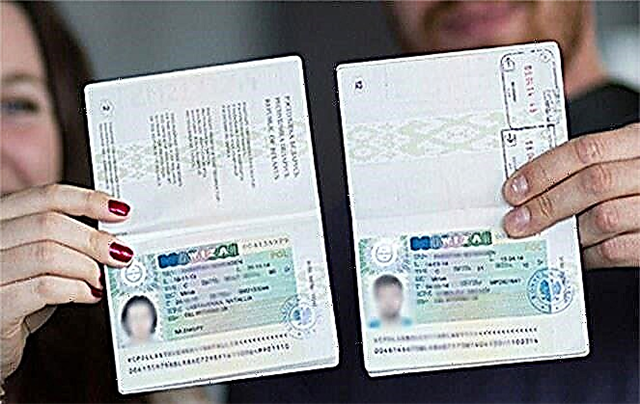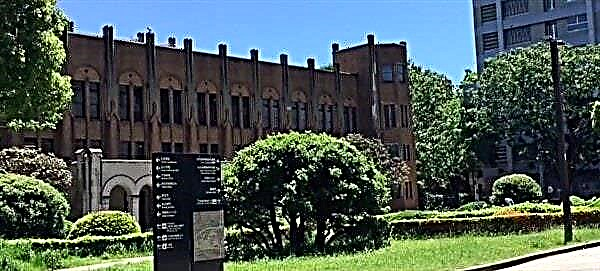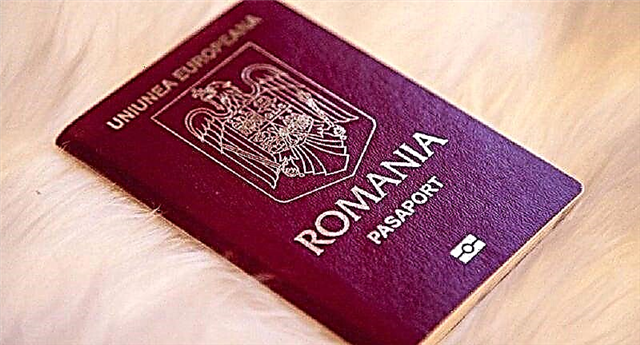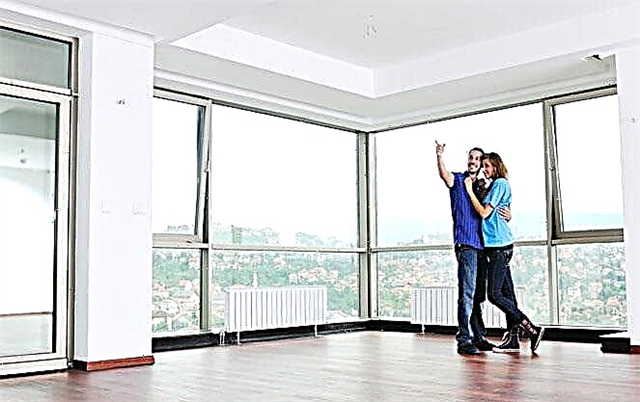In Spain, there is a gradual development of the rental business. This is facilitated not only by the opportunity to obtain a residence permit for the purchase of real estate from 500 thousand euros, but also to have a good profit from renting out housing to tourists, and even the Spaniards themselves. If you are interested in how to rent out an apartment in Spain, first of all, you should familiarize yourself with the legal aspects and peculiarities of this type of business.
How profitable is the rental business in Spain?
Real estate located in the resort area, which is purchased mainly for the purpose of renting it out to tourists, is more often in demand in the summer period (during the holiday season, about 90% of tourist real estate is occupied), in the rest of the year houses and apartments near the coastline are usually empty ... Nevertheless, the rental of tourist accommodation in the resort area provides the owner with an average of about 5% profitability per year, so a short-term rental business organized in seaside areas can be quite profitable.
It is equally profitable to rent out real estate on a long-term basis. In big cities, there is an ever-growing demand for rental properties.
As of 2021, 27% of young people aged 22-29 prefer to rent a house, rather than save money to buy it.
In addition, Spain is becoming an increasingly popular country among students who come here on exchange programs. In particular, a large influx of foreign students is observed in the city of Valencia.
What are the types of rent
Rent in Spain, as well as in other countries of the world, is of two types: long-term and short-term. When renting a property for a long-term lease, the landlord enters into a contract with the tenant, which usually lasts for 1 year.
At the same time, Spanish law protects the tenant so much that if he wants to renew it after the expiration of the contract, in the absence of compelling reasons for terminating the contract, the landlord will be obliged to renew the lease until the total period is five years.
If the tenant does not want to renew the lease and intends to leave the apartment, he must inform the property owner about this no later than 30 days before the end of the contract.
Long-term rental prices are lower than short-term ones, but the benefit of such a rental is that the home owner is provided with a continuous stable income, as opposed to short-term.
Short-term rent involves renting out housing for a period from several days to several months, depending on the needs of the tenant.
The short rental period is more suitable for tourists, students and business people on business trips. Moreover, a short-term lease will be somewhat more expensive than a long-term one. However, the landlord is forced to devote much more time and attention to the property, since the regular change of tenants requires constant contact with new people.
Negotiations, the entry and exit of tenants, the organization of house cleaning after each tenant - all this requires the continuous participation of the apartment owner in the process.
Factors affecting the rental price
The following factors influence the formation of rental prices in Spain:
- location;
- type of housing;
- rents.
Region
The location of the property is the main factor affecting the rental price. Catalonia, as well as the Costa Blanca and Costa Brava, are considered the most expensive regions in the country.
Expensive rentals are also available in all major cities far from the sea line. So, the rental price in the resort and large cities of Spain can range from 1200 to 5000 euros per month, depending on the number of bedrooms, square meters and renovation. At the same time, in small towns, monthly rent will cost from 300 to 600 euros.
Property type
It is also important what type of real estate is rented - commercial or residential, cottage or villa, apartment or room. For example, in Torrevieja, you can rent a three-room apartment with an area of 75 sq. meters for 40 euros per day, and a house of the same area - for 50 euros.
Monthly rental rate
The rental rate is determined personally by the landlord. It is formed taking into account the location, the renovation done, the number of bedrooms, the total area, the availability of additional amenities, etc.
Registration of a license for renting out real estate
In order to be eligible to rent out housing for short-term rent, in some regions of the country you need to obtain a tourist license. These regions include Catalonia, Madrid, Andalusia, Balearic Islands, Canary Islands.
It should be borne in mind that Spanish law does not provide for such a concept as "tourist accommodation". Therefore, this issue is regulated differently in each region. Nevertheless, the procedure for obtaining a license is the same everywhere.
The property owner must contact the city hall / regional administration and provide proof of the suitability of his property for rent. A "Declaration of Responsibility" will be required from the documents. This is a paper confirming the compliance of the housing condition with all the mandatory requirements.
The object is then entered into the register, and the owner is issued a Certificate of Registration with an identification number.
The cost of obtaining such a license is different in all regions. On average, the price ranges from 170 to 500 euros.
The license is issued for real estate, not for a person, so it should be borne in mind that when an object is sold, it passes to a new owner (if at that time its validity period has not expired).
Another important point: the owner must include the issued registration number and category of real estate in every rental announcement, including on the Internet.
Conclusion of a lease agreement
Rental rules are governed by Spanish law (Law on Urban Rentals No. 29/1994 of November 24, 1994). In accordance with this document, the apartment owner and tenant are encouraged to conclude a written lease agreement.
The form of drawing up a contract can be arbitrary, however, the following provisions must be reflected in it:
- personal identification data of the lessor and tenant;
- payment terms (the amount of the monthly rental rate; whether the landlord has the right to increase the rental rate; who of the parties pays for utilities and other additional services, for example, cleaning the territory, cleaning the pool, etc.);
- a list of inventory, furniture, household appliances, as well as a description of their condition at the time of delivery.
The transaction can be formalized by a notary, and the information entered into the Register of Property (Registro de Propiedad). With regard to sublease, this type of rental housing is only partially permitted, and this decision must be previously discussed with the landlord.
The rental rate must be established by agreement of the parties. By law, the landlord has the right to increase the rental rate during the period of the contract in accordance with the inflation index (if this possibility was specified in the contract).
What the landlord is not allowed to do is demand more than one month in advance (unless otherwise stated in the lease).
At the time of settlement of the rent (this usually occurs on the first week of each month), the owner of the apartment must issue the tenant a receipt for the payment made or a bank statement if the payment was made by bank transfer.
If the tenant does not pay the rent, the landlord has the right to contact the police.If after this the debt is not paid, the owner has the right to raise the issue of eviction of the unscrupulous tenant.
As in most countries, when concluding a lease, the prospective tenant must pay a deposit in the amount of the monthly rate. If at the time of check-out the furniture and household appliances remained in the same condition as at check-in, then the deposit is fully returned to the tenant.
When the landlord refuses to return the deposit, the tenant has the right to contact the police, and then, in addition to the deposit, the landlord will also have to pay the interest accumulated during the delay period.
If, at the end of the contract, damage was found in the apartment, then the cost of the damage caused will be deducted from the deposit.
If a property owner wants to sell his property, then by law he must first offer it to a tenant.
Expenses and taxation of rental income
Homeowners are required to report their rental income annually on their tax return. Rentals are subject to the following taxes:
- tax on income from renting real estate - a rate of 24% (not provided for non-residents visiting Spain on a short-term visa);
- individual tax on real estate (IBI) - up to 2% of the cadastral value of real estate.
On average, it turns out that the payment of taxes annually takes from 100 to 500 euros for renting an apartment and from 300 to 2000 euros for renting a villa.
In addition to taxes, payments for utilities (gas, water, electricity, telephone, internet, etc.) are added to real estate expenses. The question of who pays for these services must be previously agreed between the owner and the tenant, and also reflected in the contract. The landlord is responsible for redecorating and capital repairs of the housing, and the tenant is responsible for the current repairs.
Rental companies
The owner of the real estate can either rent out his property himself, or contact a special management company, which for a certain fee will take over many organizational issues.
In most cases, management companies provide the following types of services:
- search for tenants;
- drawing up a lease agreement;
- documentation maintenance during the period of housing delivery;
- preparation and submission of tax returns;
- counseling;
- renovation of real estate;
- maintenance of the territory (cleaning, pool cleaning, lawn care, etc.);
- insurance of cases of non-payment of lease payments.
The management company commission is approximately 7-15% of the rental fee.
In addition to the management company, the owner can also contact the real estate agency. However, in this case, he can only be provided with services for a specific room that is rented, while using the services of a management company is more profitable if you need to take care of the whole building with a large number of rooms.
Finally
Acquisition of real estate in Spain from 500 thousand euros gives foreigners the opportunity to obtain a residence permit, but a resident card is far from the only benefit from such an investment.
The rental business in Spain is strengthening its position and becoming more profitable every year. The country is annually visited by millions of tourists from all over the world who, instead of hostels and hotels, increasingly choose daily apartment rentals. However, long-term rent is no less profitable.
If you want to rent out an apartment or house in Spain, you should carefully study the legal aspects of rental issues both in the kingdom as a whole and in its individual regions, since each of them has its own nuances. For example, in some regions, before renting out property for short term rent, you need to obtain a special license. In addition, you should familiarize yourself in detail with the tax rates that are levied on rental income in Spain, as well as other related costs.











